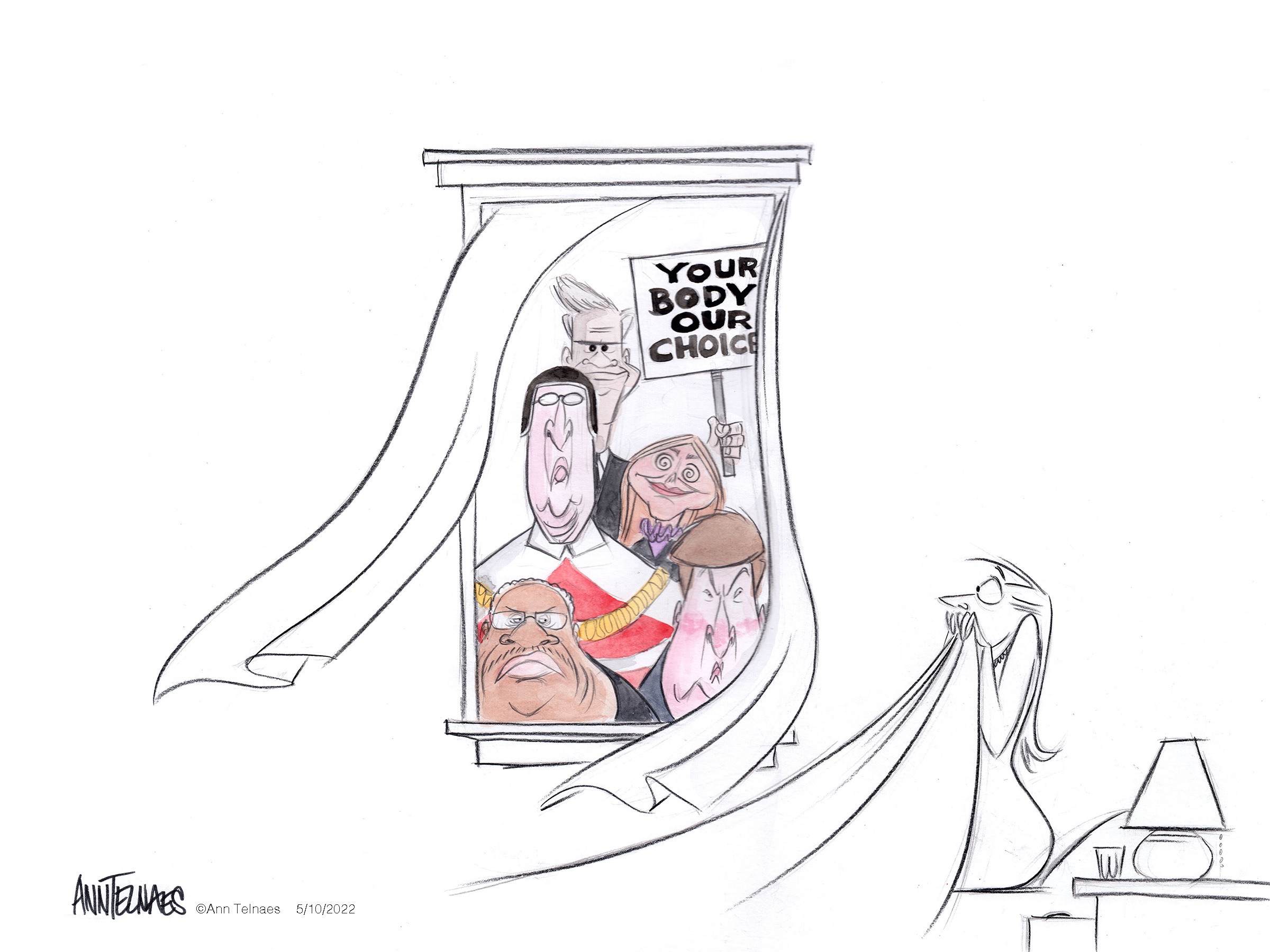
“Congress shall make no law respecting an establishment of religion, or prohibiting the free exercise thereof….” First Amendment to the United States Constitution
The United States of America is becoming a theocracy. The Dobbs decision has bypassed the Congress by having the Supreme Court establishing a de facto religion which forces unwilling women to become mothers.
So far this religion has evidenced itself with the Court’s failure to uphold the Roe v. Wade decision. The Court’s decision in the Dobbs v. Jackson Women’s Health Organization gave power to individual states to regulate the legal status of abortion. Remember, the majority of Americans are prochoice, according to several recent polls. There are fears that more is to come, perhaps even resuscitating the Comstock laws which forbad use of contraception.
Abortion has not always been frowned upon. Back when the Constitution was written, women’s healthcare was in the hands of women, including herbal abortifacients, and it is likely that men had no idea what was going on. It is silly to think that the Constitution would include anything about women’s healthcare, let alone abortion, yet part of the argument in the Dobbs decision is that there is no mention of abortion in the Constitution. Remember, the people at the Constitutional Convention were all white males! Abortion was acceptable in colonial America and didn’t become illegal until the mid-1800s.
This new religion was sired by the coupling of rightwing politics and conservative religions, including Roman Catholicism and the evangelicals who have overtaken the South. The primary tenets of the new religion pretend to be in favor of narrowly defined “life”, claiming that human life begins when human sperm and egg meet. It appears that most followers of this new religion don’t care much what happens to the “life” except when it is in the woman’s reproductive tract—with little attention to the person who supports that uterus. After birth, they tend to not support healthcare, social services or education—especially sex ed. Teen pregnancy rates are highest where the evangelicals are strongest.
In reality, the “prolife” people may be courting death. They are encouraging continued human overpopulation with consequent destruction of Creation. Humans are causing the massive extinction of species, many of which are essential to our own existence. Our clever synthesis and use of chemicals is toxifying the air and water with poisons, some of which last forever. And don’t forget the climate chaos that even Trump cannot ignore.
The high priest of this new religion is Samuel Alito, the principal author of the Dobbs decision. His bishops are John Roberts, Clarence Thomas, Neil Gorsuch, Brett Kavanaugh and Amy Coney Barrett; all supported the Dobbs decision. These 6 justices were all appointed by Republican presidents; the three dissenting justices were appointed by Democratic presidents. It is unlikely that this happened by chance. The unescapable conclusion is that this judgement was politically based.
What can be done about this apparent incursion of a state religion into the USA? A group of religious leaders have sued the State of Florida, which has one of the most prohibitive abortion laws in the country. These leaders claim that that their ability to live and practice their religious faith is being violated by the state’s new abortion law. One of them, Reverend Laurie Hafner of the United Church of Christ, stated “I am pro-choice not in spite of my faith, but because of my faith.”
Similarly, a patient at Planned Parenthood asked me, after her abortion, “Are you a Christian?”
“Yes”, I responded. “I am a Quaker. I feel obliged to perform abortions because it is one way I can help people and also help this overpopulated world.”
Rather than preserving the sanctity of human life, as believers in this new religion profess, it worships the contents of a pregnant woman’s uterus and damns the imagined evil of abortion. This religion ignores the fact that one in five human pregnancies ends in a spontaneous abortion, also called “miscarriage”. If human fetuses are so holy, why does God allow miscarriages to happen?
I am worried that minority religious beliefs are being imposed on the majority by a powerful minority. We must push back in the upcoming elections and send a signal to the Supremes that we won’t tolerate a state religion.
© Richard Grossman MD, 2022
